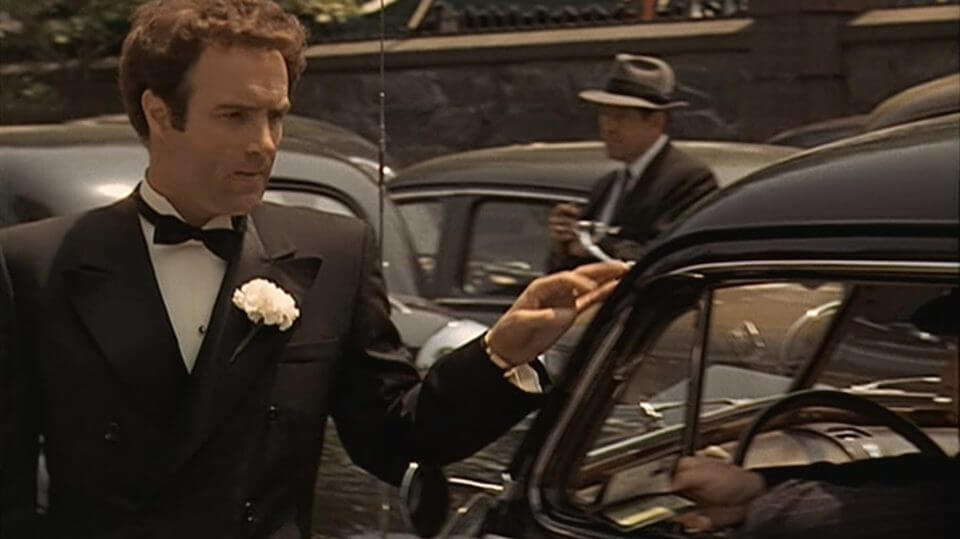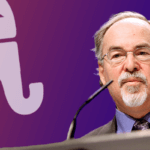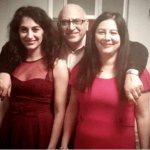
“When we look back on honor cultures like the Mafia…They embrace values that are precisely what are lacking in our lives—like that fierce, passionate loyalty that Sonny has. He’s not thinking about his own self-interest. He’s thinking about the fact that that guy beat up his sister, and he needs to pay for it.”
Dr. Tamler Sommers is an associate professor of Philosophy at the University of Houston, where he specializes in issues relating to free will, moral responsibility, punishment, and revenge. He also hosts the bi-weekly podcast Very Bad Wizards, alongside psychologist Dr. David Pizarro. In May 2018, Professor Sommers published his third book Why Honor Matters, a discussion of the role of honor in modern society. On July 5th, he joined Merion West to discuss honor’s complicated relationship with modern society.
In your book Why Honor Matters, which you published this spring, you place honor in the modern context of Western society that looks at it as dated or backward. My first question is: how did Western society come to view honor this way?
That’s a good question, and it’s really complicated. I think there’s a lot of factors that lead into that. Honor cultures traditionally tend to be smaller because honor emphasizes values like community and loyalty. In honor cultures, people have a heightened concern for their reputation and their status within a group of people. So, in well-functioning honor cultures—and even most non-well functioning honor cultures—people know each other, know their reputations, and their relative worth within the community.
When modern life became large, industrialized, and largely anonymous, the environment for honor as a value to flourish was no longer conducive. It’s hard to care about your reputation when we interact with people in this anonymous way where nobody really knows who you are. Think about how often you interact with somebody that doesn’t know your name, or if they do, they forget it ten seconds later because you gave them your credit card or something like that. I think just economic, ecological, and social life became non-conducive for these kinds of values to flourish, at least at the national level.
Now, why are they considered backward? Well, people in these large anonymous societies—these materially wealthy societies—tend to look down on people in smaller groups. Now, when we look at practices from the honor cultures of the past—or even honor cultures of the present in other parts of the world—their traditions and things they care about seem kind of quaint to us, or at least to many people. They seem backward, they seem primitive, and they seem irrational. We like to congratulate ourselves on how rational we are.
There have been some benefits to this change in worldview from an honor culture to what some people call a dignity culture: where individual autonomy and individual freedom are celebrated. There are benefits to that, but there are also costs to that—and that’s the thing I focus on in my book.
So I actually find it very interesting that you start the book by describing Sonny Corleone from The Godfather. In a way, it represents how our society has a sort of fascination with systems of honor, yet we don’t follow it ourselves. What do you think that says about our society?
I think, you know, when we look back on honor cultures like the Mafia or sports movies, we find that they have these characteristics. They embrace values that are precisely what are lacking in our lives—like that fierce, passionate loyalty that Sonny has. He’s not thinking about his own self-interest. He’s thinking about the fact that that guy beat up his sister, and he needs to pay for it.
Sonny is so loyal to his family that he will risk his life—and ends up costing himself his life—to act on that loyalty and on that passion. This is what we kind of miss. This is what, I think, part of us thinks is what human life is all about. This is what makes life worth living. Some of these values—the ability to express courage, right? I need to risk my safety for the benefit of the community that I’m in. These are the kinds of things we never get to do unless we’re in the military, which is kind of an honor culture of its own, or in some other walk of life, maybe as a firefighter or something.
For the rest of us, these are the kinds of values and the kinds of behaviors that we are drawn to, but we find life provides very few opportunities. Also, when those opportunities arise, we’re not ready for it. We haven’t trained for it. We haven’t habituated ourselves to be disposed to act in those kinds of ways. But I think a big part of us wishes that we were.
As you said before, the reasons we’re not there [as an honor culture] is because we look at it as a primitive state that we’re glad we’ve moved on from. Do you think this fascination is in any way sort of discriminatory in the same way we idealize Native American culture or other cultures in Hollywood?
There’s a kind of inconsistency in my responses. On the one hand, I say we’re fascinated by it and drawn to it. Then we also think it’s primitive and backward. I think it is an inconsistency in our perspective on honor culture. I think I describe it as a kind of schizophrenia; we’re drawn to it, but we also look down on it.
We idealize it, as you say. I think with certain cultures, maybe Native American cultures. But then we also find [that] the religious aspects of it, the ritualistic aspects of it are seen to be a step backward or barbaric. This is just sort of our personal conflict about honor that I don’t think we’ll ever resolve.
I think one of the things in the book that I try to point the way to are how some of these values, characteristics, and virtues can be expressed without giving up the benefits that have come with living in a society that has great respect for human rights and human dignity.
My next question is stepping out of the book just a little bit. If you were to apply those values and virtues that you say we lack in our current society or even our current government, what do you think it would solve, if anything?:
I don’t know if it will help at such a macro level, such as in the way we engage in politics. I do think politicians could show a little more personal honor and not fear for their elections. But I’m not a political scientist, so I don’t know. When Ted Cruz endorsed Donald Trump after Donald Trump had called his wife ugly and said his father killed JFK, I can’t think of anything more cowardly [and] less honorable than doing that. I think he did it because he thought it was politically the savvy thing to do.
I think sometimes, voters would respect—because voters are drawn to people who live by some sort of code—if politicians stood for their principles and not just for their political futures. But maybe I’m wrong. Maybe politicians have tried it, and it hasn’t worked. I don’t know. So, at a macro level, I’m not sure. Everything is just a little too large, diverse, and anonymous.
At a micro level, I think we as individuals, groups, and neighborhoods can come together in these smaller, more manageable groups. Sports teams are a great example. This is a nice, contained environment where people know each other and where a lot of honor values can flourish. Does that bleed out into the larger society into politics? Maybe not, but it will help individuals, who are feeling lost and alienated and isolated in this society, find some sort of community that we’re finding people crave right now.
When you’re looking at these honors systems in these societies, how do you distinguish between something that is good and something that is bad?
Well, you look at certain honor cultures: the ones where honor killings happen, for example. Honor killings happen when a woman is suspected of having extramarital sex. One of the family members will kill her. The family member feels a duty to kill her—or else their family is dishonored and shamed within the community. This is the problem with honor cultures.
If you have a value—like a woman has to be sexually pure and even the suspicion of sexual impurity means that there’s a kind of rot within the family that has to be stamped—that’s a terrible norm. That’s a terrible moral value to uphold. The fact that these cultures are honor cultures, family members even who love their sister who is suspected of doing this still feel honor-bound to murder a beloved family member. It’s not hard to say that’s a morally abhorrent value system that honors motivational effectiveness is perpetuating.
I don’t have a complicated or sophisticated answer. When your values are good, the psychological power of honor codes and of honor frameworks is a good thing. It’s an advantage. But when the values and the morality are bad, then that same psychological power becomes a disadvantage.
Has honor been changed in any way by social media or technology?
I think there’s a couple of ways of looking at social media. One is that it is honor corrupted because you can shame, attack, challenge, or insult people with no consequences. Certainly, insulting or challenging somebody and then responding to challenges are features of honor culture, and you see that on Twitter all the time.
The thing about honor culture is that you take a risk when you do that, right? You take a risk if you challenge somebody, you’re challenging them face to face and might come out on the losing side of that. For a lot of the stuff that has happened on social media, it is anonymous, and even if you’re using your real name, nobody knows who you are anyway. There’s really no risk, no cost, no consequences. If it’s honor, it’s honor deeply corrupted without the engine that makes it work, which is the fact that you don’t have to take responsibility for what you say about another person.
This is what led to duels. There are no duels on social media. People say they get death threats, but they’re not real death threats. In an honor culture, if you’re going to call somebody a liar, you might have to sit there and take the risk that you might get stabbed or might get shot. There’s nothing like that in our culture. You can just say what you want about anybody from your basement, and nobody will do anything to you.
So, I have one final question. What do you see as the future of honor? Do you see it being further pushed backward, or do you see this changing in any way?
I wish I knew the answer to that. Part of me thinks that there is a future again in certain smaller domains of American society. I talk a lot about restorative justice as a more honor-oriented way of approaching conflict and criminal punishment. I think if that gains traction, as I hope it will—and as it already has within schools and juvenile courts—then that’s a way for honor values to come out without changing the overall structure of society.
But honestly, there’s nothing that gives me too much hope. We seem to be getting more withdrawn within our own electronic world and more isolated. We spend a lot less time in our neighborhoods with communities where people know us, where we gather. We’re losing a lot of the rituals that make honor cultures flourish and make communities flourish. We’re retreating to our little castles. And if that continues, then honor really can’t thrive or even survive in an environment like that.
This was a very interesting conversation, and I appreciate you joining us.
Thank you. I enjoyed it. Nice talking with you.










